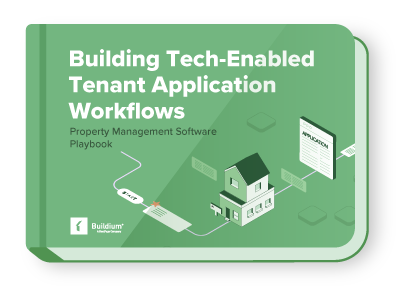Even the best-run HOAs face expenses that no budget can fully cover. From sudden roof repairs to new city regulations, surprises happen. When they do, special assessments give communities a fair and open way to share the cost. After all, many HOA members are hesitant to pay fees beyond their regular dues.
Start your free trial today!
Try Buildium for free for 14 days. No credit card needed.
Start Your TrialFor association managers, knowing how to plan and carry out a special assessment is part of the job description and a way to protect the community’s finances while maintaining homeowner trust.
In this post, we’ll break down what special assessments are and why communities need them. We’ll also cover how to implement them step by step, along with best practices to keep the process transparent and effective.
How an HOA Special Assessment Fits Into Your Management Strategy
Unlike standard HOA dues, an HOA special assessment is a one-time fee charged to community members to cover expenses not included in the regular budget. Authority to charge special assessments comes from the HOA’s government documents and applicable state laws.
Importance in Property Management
As a community manager, you may be tasked with introducing special assessments to fund unexpected expenses. This ensures urgent needs are met without compromising other budget items, protects property values, and acts as a tool to manage cash flow and avoid deferred maintenance that could lead to bigger problems later.
Common Reasons for Special Assessments
It helps to understand the kinds of situations that often trigger a special assessment. Some of the most common include:
- Emergency repairs (utility system damage, storm damage, other natural disasters)
- Major capital projects (roof replacements, road resurfacing)
- New legal requirements or settlements (updates to local building codes)
- Budget shortfalls due to unexpected cost increases or insufficient reserves
The Process of Implementing a Special Assessment
Before moving forward with a special assessment, it’s important to understand the key requirements and guidelines that shape the process. Here are a few to keep in mind:
Legal Requirements and Guidelines
Check your state’s HOA laws to stay compliant with any special assessment regulations, such as minimum notice periods, voting requirements, and maximum amounts. From there, review the HOA’s governing documents, i.e., its Covenants, Conditions, and Restrictions (CC&Rs). It’ll outline proper special assessment procedures.
If you still have questions or concerns, consult a legal professional to avoid potential disputes with individual HOA members or the state.
Steps Involved in Proposal and Approval
To propose a special assessment and get it approved, you’ll need to:
- Identify the funding needed. Determine the exact amount of money required to cover the specific project or expense.
- Secure preliminary board approval. Get initial buy-in from the HOA board to move forward with the special assessment.
- Draft the assessment plan. Create a detailed plan outlining the assessment amount, payment schedule, purpose, and any other relevant details.
- Notify members. Give official written notice to HOA members explaining the special assessment, the reasons for it, and details on how to vote for or against it.
- Wait for the voting results. Allow time for members to vote and then review the results with the board to determine if the special assessment is approved.
Financial Implications of Special Assessments
Special assessments can affect more than just the HOA’s balance sheet. Here are some of the key financial implications to keep in mind:
Impact on Homeowners
Special assessments impose a financial burden on homeowners. If they’re already struggling to pay bills, adding one more could be a serious challenge. Plus, a history of special assessments could lower a property’s resale value, as buyers adjust their offers to account for HOA fees.
Accounting for Special Assessments
Maintain a separate account for special assessments to avoid mixing funds. You may also want to update budget forecasts to reflect the temporary increase in income. By carefully tracking special assessments, you’re less likely to run into legal or tax trouble.
Pro tip: Buildium’s built-in accounting features make it easy to segregate special assessment funds and reconcile them with bank accounts, reducing manual bookkeeping work.
Potential Tax Implications
Many property expenses, including special assessments, can be deducted from an owner’s rental income. If your HOA includes landlords, this is good news. They may ask you for an expense report that they can use for write-offs.
Managing Funds from Special Assessments
After the funds are collected, the HOA’s responsibility shifts to managing them carefully and transparently. This includes deciding how they’ll be allocated and disbursed, keeping detailed records, and giving homeowners visibility into every step of the process.
Allocation and Disbursement of Funds
Carefully segregate funds for the intended project and always get authorization from the HOA board before spending them. This helps you allocate special assessment funds to their intended use and avoid miscommunication.
Reporting and Transparency
Keeping detailed records of special assessment income and expenses is good for future reference and potential audits. Give the HOA board and members regular updates on fund allocation and project progress to maintain their trust and confidence. Pro tip: A messaging portal can help with this.
Best Practices for Fund Management
To effectively manage special assessment funds, use project-based accounting to track each expense. You should also partner with reputable local contractors. Collect and compare multiple bids to get the best deal.
Common Challenges and Issues
Of course, introducing special assessments comes with its own set of challenges. The good news is that with the right approach, many of these issues can be anticipated and addressed. Here are some of the most common ones, along with ways to overcome them:
Homeowner Resistance and Legal Challenges
Some homeowners may resist paying special assessments, even if passed by a majority vote. Address any concerns or misinformation about the special assessment by clearly communicating the scope, purpose, and need for the project.
In addition, document all project-related decisions to defend against potential legal disputes. The last thing you want is a costly liability on your hands.
Maintaining Community Confidence
To maintain community members’ confidence, regularly share project updates, be transparent about the use of funds, and always follow through with promised timelines and deliverables. After all, these are their funds that you’ve been trusted with, so you must keep them in the loop.
Best Practices for Working With HOAs
Let’s look at a few best practices that can help association managers navigate special assessments more smoothly and build stronger relationships with their HOAs:
Effective Communication Strategies
Tailor your communication channels to what the HOA board and members prefer (email, text, owner portal, etc.). Then provide regular updates and progress reports. Also, keep track of frequently asked questions and have answers to them ready to share to cut your response time.
Pro tip: Buildium’s built-in HOA communication tools let you engage with community members via mail, email, text, and online messages. That way, you can quickly send progress updates. You can also share important documents (bylaws, owner statements, etc.) with board members.
Building a Reserve Fund
With an adequate reserve fund, you’ll need fewer special assessments. This is why it’s important to conduct regular reserve fund studies—to see how much needs to be put aside each year for the unexpected.
Long-Term Planning and Risk Management
As an HOA manager, you must plan ahead to mitigate potential risks. This includes budgeting for future expenses, keeping track of the wear and tear on properties, and scheduling repairs and system replacements before emergencies occur.
Technology to Facilitate an HOA Special Assessment Effectively
Special assessments can be complex, but with the right tools, you can turn them into a smooth and transparent process that strengthens community trust.
Buildium’s all-in-one property management platform was built with HOA managers in mind. For example, it helps you streamline communication with HOA members by letting you send automated updates and messages. It also helps you perform accurate trust accounting by automatically segregating funds and reconciling bank accounts.
Whether you’re facing an urgent repair or a major improvement, Buildium gives you the control and efficiency you need to manage special assessments effectively.
If you’d like to see how Buildium can simplify HOA management, start with a no-risk, 14-day free trial. You can also schedule a personalized demo to explore how the platform can meet your community’s unique needs.
Frequently Asked Questions
What is a special assessment for HOA?
A special assessment is a one-time fee charged to HOA members to cover unexpected expenses or major projects not included in the regular budget. In other words, it’s an additional charge beyond the regular HOA dues.
How is the amount for a special assessment determined by the HOA?
The HOA board calculates the amount (often with the HOA manager’s help) based on the total project costs or expenses, divided among members according to the community’s governing documents.
What steps are involved in the approval process for a special assessment within the HOA?
The process typically includes identifying the funding need, getting board approval, notifying members, holding a vote (if required), and finalizing the plan according to state laws and HOA bylaws.
What happens if a homeowner is unable to pay a special assessment fee?
Consequences vary by HOA rules, but they may include late fees, interest, restricted access to amenities, or legal action to recover unpaid dues. Try to avoid this situation by clearly communicating the scope and need for the special assessment.
Can a special assessment be appealed or challenged?
In some cases, homeowners can challenge a special assessment by following the dispute resolution process outlined in the HOA’s governing documents or applicable state laws. However, clear communication and careful risk mitigation can help you avoid this.
Read more on Accounting & Reporting

